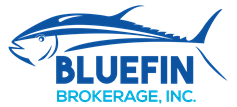Customs clearance work involves preparation and submission of documentations required to facilitate export or imports into the country, representing client during customs examination, assessment, payment of duty and facilitating delivery of cargo from customs after clearance along with documents.
There are two types of customs brokers – private individuals and organizational brokerages. Organizational brokerages consist of corporations, partnerships, LLCs, or associations.
All brokers are regulated and empowered by U.S. Customs and Border Protection (CBP) to assist importers and exporters in meeting Federal requirements governing imports and exports. Brokers submit necessary information and appropriate payments to CBP on behalf of their clients and charge them a fee for this service.
Brokers must have expertise in the entry procedures, admissibility requirements, classification, valuation, and the rates of duty and applicable taxes and fees for imported merchandise. There are approximately 16,170 active licensed Customs brokers in the United States.
Corporations, partnerships and associations must obtain a broker license to transact Customs business. Each of these businesses must have at least one individually licensed officer, partner or associate to qualify the company’s broker license. Failure to have a qualifying officer or member (of a partnership) for more than 120 days will result in the revocation of the broker license.
